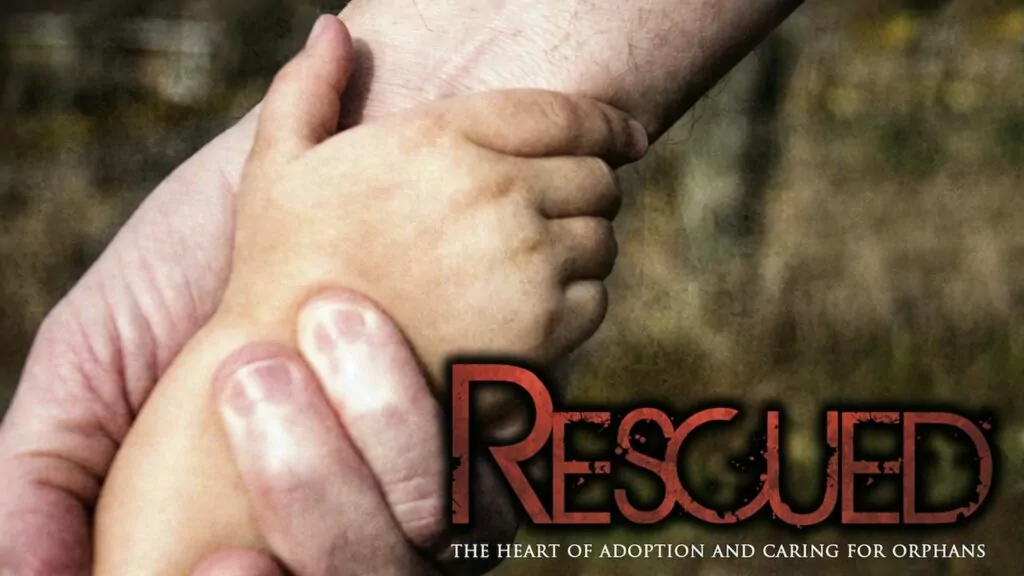
Magazine, Past Issue
July/Aug 2025 issue
WHAT'S INSIDE: Are you still able: A nation-wide challenge to experience life without screens / Creation stewards in a logging town / Who do you want to be? RP's 10-day screen-fast challenge / We took the no screens challenge... and now we're changing our habits / What can I do anyways? 35 screen-alternative ideas / Is TikTok the ultimate contraception? / How to stay sane in an overstimulated age / Defeated by distraction / How to use AI like a Christian boss / Who speeches were they? On AI, and others, writing for us / The Way / Who is Mark Carney? / What if we said what we mean? - the political party edition / Am I lazy or just relaxing? What does Proverbs say? / Get out of the game: Christians need to steer clear of sports gambling / Man up: ARPA leaderboards and the call to courageous action / Christians don't pray / Our forever home / Calvin as a comic / The best comics for kids / Fun is something you make: 11 times for family road trips / Come and Explore: Mr. Morose goes to the doctor / Rachel VanEgmond is exploring God's General Revelation / 642 Canadian babies were born alive and left to die / 90 pro-life MPs elected to parliament / Ontario shows why euthanasia "safeguards" can't work / RP's coming to a church near you / and more!
Click the cover to view in your browser
or click here to download the PDF (8 mb)

News, Pro-life - Euthanasia
MP says: No MAiD for the mentally ill
BILL C-218 PROPOSES TO SCRAP EXPANSION OF EUTHANASIA FOR MENTAL ILLNESS
*****
MP Tamara Jansen has introduced a new bill that would repeal the expansion of euthanasia to those with mental illness. Four years into the conversation about euthanasia for mental illness, we can be incredibly happy that there is another proposal to eliminate one of the most egregious parts of Canada’s euthanasia regime.
History of the planned expansion of euthanasia for those with a mental illness
Euthanasia for those with a mental illness was first raised in Bill C-7 in 2021, which originally set a date of March 17, 2023 when euthanasia for those with mental illness would be legalized. After a report by a committee of the Quebec legislature recommended against euthanasia for mental illness and an expert panel report on euthanasia for mental illness noted significant risks, the government passed Bill C-39, which delayed the expansion of euthanasia for mental illness until 2024.
As that date approached, former Member of Parliament Ed Fast introduced Bill C-314, An Act to amend the Criminal Code (medical assistance in dying). If passed, that bill would have repealed the expansion of euthanasia to those with mental illness as the only condition causing their request. Although that bill received unanimous support from the Conservative, NDP, and Green Party, along with 8 Liberals, it failed to pass by a vote of 150-167.
As ARPA noted at the time, such a close vote, especially on a social issue dealing with a matter of life and death for those with mental illness, sends a message that Canadians have serious reservations about expanding MAiD further. If only nine more MPs had voted in favour instead of against, the bill would have passed 2nd reading and advanced to committee for further study.
In response to the close defeat of the bill and in light of concerns raised by nearly every provincial government that they weren’t prepared, the government decided shortly after to delay the expansion of euthanasia for mental illness for a second time, this time until 2027. In the wake of the vote, the Conservatives – who had unanimously voted in favor of entirely repealing the expansion – were riding high in the polls, were expected to form government, and promised to repeal the expansion of MAiD to those with a mental illness. But Trudeau’s resignation and Carney’s ascension led to a different outcome in the recent election.
With no Conservative government in charge of things and no commitment from the Liberals to revisit the issue, MP Tamara Jansen used her opportunity to introduce a private member’s bill on the issue. Her Bill C-218 is identical to the previous one introduced by MP Ed Fast and intends to permanently eliminate – rather than just delay – the tragedy of euthanasia for mental illness.
The tragedy of euthanasia for mental illness
Every case of euthanasia is a murder. And every case of euthanasia in our health care system is fundamentally at odds with the central premise of health care of doing no harm. But extending MAiD to those with a mental illness is particularly tragic.
Simple logic dictates that MAiD isn’t appropriate for people with mental illness. People who have a mental illness are not able to give fully informed consent to MAiD. By definition, their reasoning isn’t entirely sound, and so they should not be put in a position where they could choose to end their life. We should be providing suicide prevention – not assisted suicide – for those who are suicidal because of a mental illness.
As a nation, we have poured resources into suicide prevention across the country, particularly for people with mental illness. Canada now has a suicide crisis hotline to help people escape suicidal ideation. We should continue do to this rather than encouraging suicide assistance through MAiD. Indeed, offering suicide assistance undermines suicide prevention efforts.
As a country, we raise awareness around mental illness and encourage people to seek help or treatment. For example, Bell Let’s Talk Day is all about reducing the stigma around mental illness and getting people the mental health care that they need. MAiD for mental illness entirely undercuts these efforts. Rather than encouraging people to access mental health care, legalizing MAiD for mental illness encourages people to end their lives instead.
To really drive home the tragedy of euthanasia for mental illness, consider this story that we shared with young people at ARPA Canada’s “God & Government” conference a few months ago:
It’s February, and as you’ve experienced it is cold, and snowy. Just behind Parliament Hill the wind howls across the Alexandria bridge.
It’s just after dinner time, and a man originally on his way home from the corner store is now standing on one of the struts that hold the bridge in place. Emergency vehicles have begun swarming around, the bridge has been cordoned off, and traffic is being redirected to the Portage bridge further up river. A camera crew from Ottawa CTV station, craving a good story, hover just off the bridge, attempting to see what the commotion is all about.
Paramedics prepare warming blankets and pull out supplies. Police officers and other personnel chat to each other through earpieces. They’re waiting for someone. A moment later, an officer jumps out of a police car that pulls up just a few feet away from where the man clings to the buttress of the bridge.
“What’s your name, son?” the officer hollers over the whistle of the wind. “Can we talk about this right now?”
“I just don’t think I can do it anymore,” the man shouts back. “I’m done with everything. My depression is simply too much to bear. I don’t have any desire to live anymore.”
“I see,” the officer shouts back, “well if that’s the case…”
The officer jogs up to the side of the bridge, snow crunching under his heavy boots until he stands near the railing where the man is just within reach.
He hoists himself up onto the railing, reaches over and stretches until he has a hold of the bottom of the man’s heel. With a sudden jerk, he wrenches the man’s right leg high into the air. He disappears into the darkness below. “We’re good,” the cop chirps into his radio, “it’s what he wanted.”
The following morning’s headline in the Ottawa Citizen read, “Heroic Police Officer supports a young man’s right to Die with Dignity, in the face of overwhelming and debilitating depression.”
Virtually no Canadian wants to live in such a country. And yet, legalizing euthanasia in any form but especially euthanasia for mental illness, functionally puts our health care system in the exact same position.
The road before us
Bill C-218 again offers Canada the opportunity to step back from the euthanasia ledge and onto firmer ground that respects the value and dignity of very human life. We are grateful that another MP has taken up this issue and is pushing the government to repeal further expansion of euthanasia.
The new Parliament after the spring election has a fairly similar makeup in government as when Bill C-314 – the previous proposal to scrap the planned expansion for euthanasia for mental illness – was voted on. Prime Minister Carney has not expressed where he stands on the issue of MAiD. Perhaps he will whip his caucus to defend the previous government’s law, but perhaps he will allow a free vote among his MPs on the issue.
The fact that this is still a live issue and that now four separate pieces of legislation have arisen on this topic in just four years is a testament to your continual advocacy! ARPA groups across the country have worked hard to email and meet with your MPs, talk with your neighbors, and deliver nearly 250,000 flyers to spread the message of caring, not killing.
This has contributed to the ongoing conversation, but with another bill on the table, we need to get back at it. Take a few minutes to email your own Member of Parliament expressing your support of Bill C-218 and ask them to support it as well. Copy Prime Minister Mark Carney, Minister of Justice Sean Fraser, and Health Minister Marjorie Michel on that email, encouraging the government to support the legislation as well.
As Christians, we can continue to advocate for caring, not killing, in all circumstances. And we can continue to put pressure on our elected officials to do the same.
Levi Minderhoud is a policy analyst for ARPA Canada (ARPACanada.ca) where this post first appeared. It is reprinted with permission. Picture credit: office of MP Tamara Jansen.
Today's Devotional

July 2 - Fellowship in the light
“God is light and in Him is no darkness at all.” - 1 John 1:5
Scripture reading: 1 John 1:5-8; Ephesians 5:8-21
Light is a common metaphor in the Bible to describe who God is. It speaks of God’s holiness or, in other words, His absolute moral perfection. In God there is not even a hint of darkness nor could there be, for God >
Today's Manna Podcast

Obedience
Serving #891 of Manna, prepared by B. Tiggelaar, is called "Obedience" and is based on Genesis 3:1-15.





























































